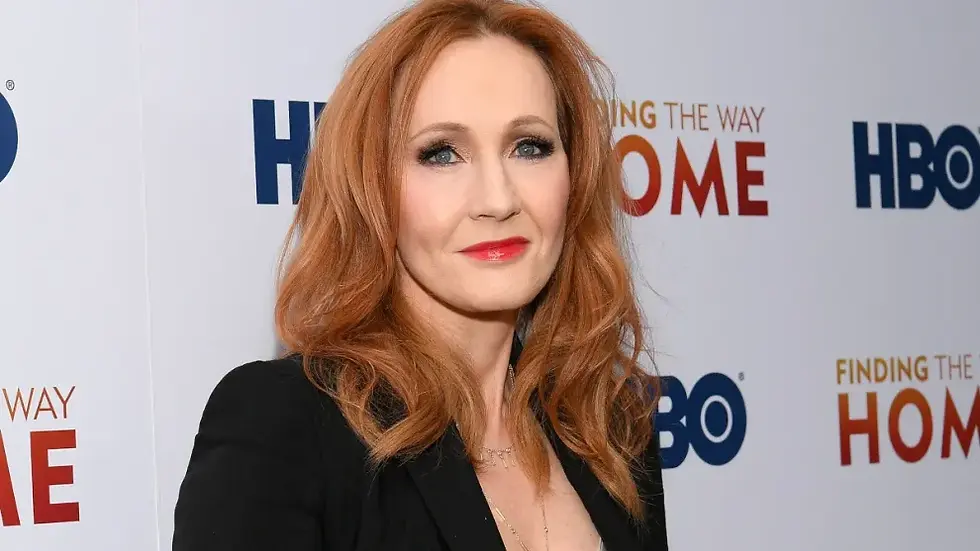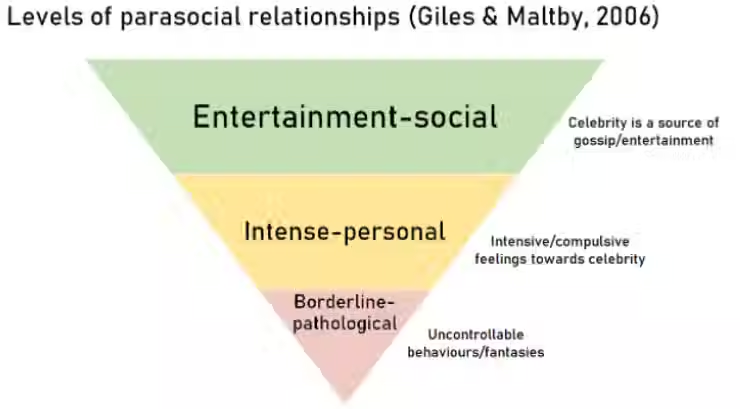I’ll admit it, there have been times when I felt like I knew a celebrity or influencer personally. Whether it was watching the same YouTuber for years or keeping up with a favourite artist’s every post, I found myself deeply invested in their lives, emotions, and even their successes or failures. And I know I’m not alone in this. Have you ever caught yourself saying, “Oh, they wouldn’t do that!” about someone you’ve never even met (or isn’t even real?) That’s the power of parasocial relationships—a one-sided emotional connection we form with public figures, influencers, and even fictional characters.
For Gen Z, the internet isn’t just a tool, it’s also a space where we live. From social media to streaming platforms, technology has made interactions with influencers and celebrities feel incredibly personal. Unlike past generations who admired movie stars from a distance, we now have 24/7 access to our favourite public figures. We see their “unfiltered” Instagram stories, hear their thoughts on Twitter, and sometimes (if we’re lucky) we’ll even get direct responses to our comments on TikTok. This accessibility blurs the line between admiration and personal connection, making it easy to feel like we know them.
But it’s not just influencers! We build connections with podcast hosts, streamers, and even fictional characters. The human brain is wired to seek social bonds, and technology has provided a new way for us to fulfill that need.
What Are Parasocial Relationships?
A parasocial relationship is a one-sided emotional attachment where a person feels a deep connection to someone who doesn’t actually know them. Coined by social scientists Donald Horton and Richard Wohl in 1956, the term originally described how audiences felt connected to television personalities. Today, parasocial relationships have evolved in the digital era, strengthened by social media’s illusion of intimacy.
Several psychological factors explain why we form parasocial relationships:
Social Connection – Social media platforms create a sense of direct communication and connection. Seeing influencers post daily vlogs or “talking to the camera” mimics real-life interactions, tricking our brains into believing we have a genuine bond.
Emotional Fulfillment – During times of health struggles, breakups, or other life stressors, many people turn to online figures for advice, motivation, or companionship. Humans are social creatures, and parasocial relationships can provide comfort, inspiration, and even a sense of belonging.
Escapism & Identity Formation – Engaging with influencers allows us to momentarily escape our own lives while also shaping our identities. Fans may adopt their favourite creators’ fashion styles, beliefs, or interests, integrating them into their own sense of self.
The Deepening of Parasocial Bonds: Gen Z and the Digital Age
As I mentioned earlier, parasocial relationships are not a new phenomenon—people have been forming one-sided emotional connections with celebrities for decades. In the past, fans idolized movie stars, television personalities, and musicians, but these relationships were largely passive. You’d watch your favourite actor on screen or hear your favorite musician on the radio, but there was no illusion of interaction. The relationship was distant, defined by admiration rather than perceived intimacy.
However, the digital era has completely reshaped how we engage with public figures. Social media and interactive content have transformed fan culture, allowing influencers to cultivate an image of authenticity by sharing raw, unfiltered aspects of their daily lives. Now, today’s influencers are able to invite followers into their personal spaces, creating an illusion of intimacy.
Take Alix Earle, for example. The beauty influencer and TikTok sensation has amassed millions of followers by offering a behind-the-scenes look at her daily life. She frequently posts everything from get-ready-with-me videos, where she shares her beauty routines, to more personal updates, like discussing her relationships and experiences with anxiety and acne. Alix’s candid and relatable approach makes her feel like a close friend to her followers, even though they may have never met her
in person.
Research supports this growing influence. A 2011 study by Hartmann and Goldhoorn found that messages delivered while facing the camera fostered stronger mediated relationships than those where the speaker was not facing the camera. This finding highlights the power influencers wield—particularly on TikTok, where content is primarily driven by creators speaking directly to the camera. Scientifically, this method is one of the most effective ways to create a persuasive and influential message, making TikTok a key platform for deeply engaging parasocial relationships.
Moreover, the rise of social media has provided a diverse range of platforms for communication, each offering a unique way to engage with public figures. Whether it’s reading their spontaneous thoughts on Twitter, scrolling through candid Instagram dumps, or watching a “day-in-my-life” vlog on TikTok, fans are exposed to a constant stream of content that fosters a sense of familiarity. These multiple channels don’t just make it easier to consume an influencer’s content—they create the feeling of an ongoing, personal connection. This unprecedented accessibility has fueled the rise of parasocial relationships, making them more immersive, personal, and emotionally engaging than ever before.
How Creators Keep Us Hooked on Parasocial Bonds
We, as consumers, aren’t entirely to blame for our tendency to form parasocial bonds. In many cases, influencers, celebrities, and even book authors actively encourage these connections to keep us engaged. By sharing personal anecdotes, interacting with fans, or revealing new details about beloved characters, they create the illusion of a deeper, more personal relationship—one that keeps audiences invested.
A well-known example is J.K. Rowling’s 2007 revelation that Dumbledore was gay, despite there being no clear indication of this in the Harry Potter books. Her announcement sparked intense debate among fans, with some praising the representation and others feeling as though their personal perception of the character had been disrupted. By offering additional “backstory” beyond the novels, Rowling blurred the line between fiction and reality, making Dumbledore feel like a real person rather than a literary creation.
This illustrates how creators often foster parasocial bonds by engaging with their audience in ways that make their characters or personas feel authentic, deepening emotional investment and ensuring continued attention. Whether through social media engagement or unexpected revelations, these tactics keep fans emotionally hooked, sometimes without them even realizing it.
Are Parasocial Relationships Harmful?
Like most psychological phenomena, parasocial relationships exist on a spectrum. At a healthy level, they can provide comfort, motivation, and even positive role models. But when taken too far, they can lead to unhealthy attachment, obsession, or unrealistic expectations. Some people may even feel personally betrayed if an influencer changes their content, starts a new relationship, or doesn’t meet fan expectations. The image below illustrates the different levels of parasocial bonds.
Research suggests that the more someone depends on parasocial relationships, the lonelier they tend to feel—yet paradoxically, they may also be more trusting of others. This could be because these relationships offer a sense of stability and emotional security. However, an overreliance on both parasocial and real-world social relationships has been linked to a higher risk of social media addiction, highlighting the importance of maintaining a healthy balance.
Final Thoughts
Parasocial relationships are an inevitable part of digital culture, especially for us Gen Zers, who grew up with influencers as their role models. While these connections can be meaningful, it’s important to recognize them for what they are—one-sided relationships that, while emotionally fulfilling, are ultimately not mutual. Finding a balance between enjoying content and maintaining real-world social bonds is key to keeping these relationships healthy.
Have you ever felt deeply connected to an influencer or celebrity? If so, what drew you to them? Let’s talk in the comments!
References
Baek, Y. M., Bae, Y., & Jang, H. (2013). Social and parasocial relationships on social network sites and their differential relationships with users’ psychological well-being. Cyberpsychology, Behavior, and Social Networking, 16(7), 512–517. https://doi.org/10.1089/cyber.2012.0510












.png)



I think the buzz word 'parasocial relationships' has recently been trending with the uprise of online creators/influencers, but really this phenomenon has been happening since the birth of the entertainment industry. This relationship between the audience and the 'product' is something that industries profit off of as the bond that an individual feels towards a stranger can be so intense. I think in this way its interesting to see how psychology is utilized within a more business/content strategy mindset.
Fascinating article. Society is truly obsessed with the thoughts, musings or serious commentaries of celebrities. I wonder if the celebs themselves believe that they have an inordinate amount of influence on their followers politics for example? I'd like to read an analysis of that one day